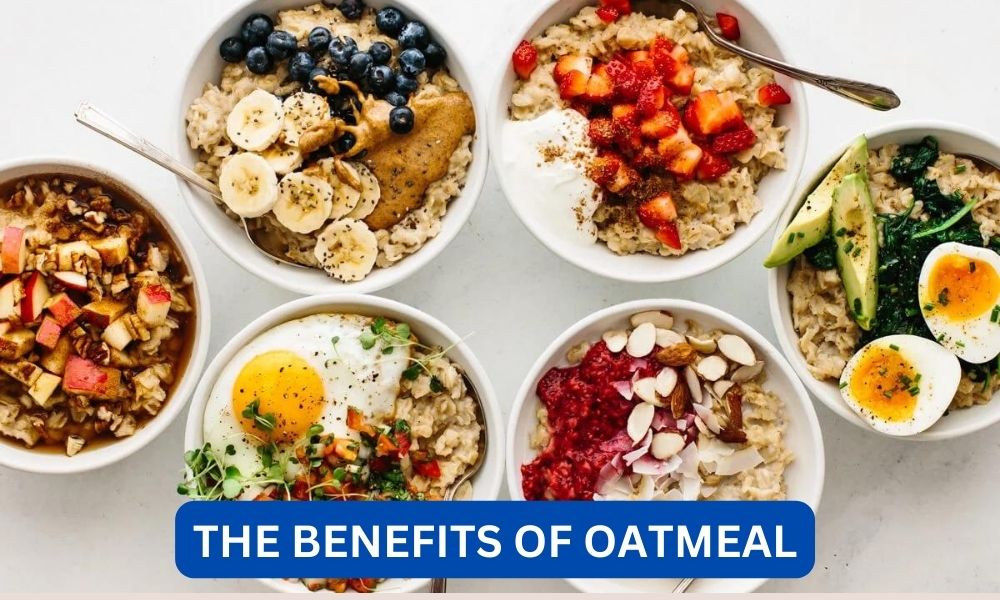Oatmeal has been a staple breakfast food for centuries, but it has recently gained popularity as a superfood due to its numerous health benefits. This humble grain, made from ground oats, is not only delicious and versatile, but it also packs a powerful nutritional punch. In this article, we will delve into the benefits of oatmeal and why it should be a part of your daily diet.
Contents
What is Oatmeal?
Oatmeal is a type of porridge made from ground oats, which are the seeds of the oat plant. It is typically cooked with water or milk and can be served sweet or savory, depending on personal preference. Oats are a whole grain, meaning they contain all three parts of the grain – the bran, germ, and endosperm – making them a rich source of nutrients.
Oats have been cultivated for thousands of years and were a staple food in many ancient civilizations. They were first domesticated in Europe and have since spread to other parts of the world. Today, the top producers of oats are Russia, Canada, and the United States.
The Nutritional Profile of Oatmeal
Oatmeal is a nutrient-dense food, meaning it is packed with essential vitamins, minerals, and other beneficial compounds. Here is a breakdown of the nutritional profile of one cup (81 grams) of cooked oatmeal:
Read:What are the benefits of pistachios?- Calories: 147
- Carbohydrates: 25 grams
- Fiber: 4 grams
- Protein: 6 grams
- Fat: 3 grams
- Manganese: 191% of the RDI (Recommended Daily Intake)
- Phosphorus: 41% of the RDI
- Magnesium: 34% of the RDI
- Copper: 24% of the RDI
- Iron: 20% of the RDI
- Zinc: 20% of the RDI
- Folate: 11% of the RDI
- Vitamin B1 (Thiamine): 39% of the RDI
- Vitamin B5 (Pantothenic Acid): 10% of the RDI
Oatmeal is also a good source of antioxidants, including avenanthramides, which have anti-inflammatory and anti-itching properties. It also contains beta-glucan, a type of soluble fiber that has been linked to numerous health benefits.
The Health Benefits of Oatmeal
Now that we know the nutritional profile of oatmeal, let’s explore the specific health benefits it offers:
1. Promotes Heart Health
Oatmeal is a heart-healthy food due to its high fiber content. The beta-glucan in oats has been shown to lower cholesterol levels by reducing the absorption of cholesterol in the intestines. This, in turn, can help reduce the risk of heart disease and stroke.
Read:What are the benefits of b complex?In fact, a study published in the American Journal of Clinical Nutrition found that consuming just three grams of soluble oat fiber per day (equivalent to one bowl of oatmeal) can lower total cholesterol levels by 5-7%. Another study showed that eating oatmeal regularly can lower the risk of heart disease by up to 29%.
2. Aids in Weight Loss
Oatmeal is a great food for those looking to lose weight or maintain a healthy weight. Its high fiber content helps you feel full for longer, reducing the chances of overeating. Additionally, oatmeal has a low glycemic index, meaning it does not cause a spike in blood sugar levels, which can lead to cravings and overeating.
A study published in the Journal of the American College of Nutrition found that participants who ate oatmeal for breakfast felt fuller and had reduced hunger levels compared to those who ate a ready-to-eat cereal. This can be attributed to the beta-glucan in oats, which slows down the digestion process and keeps you feeling satisfied for longer.
3. Regulates Blood Sugar Levels
As mentioned earlier, oatmeal has a low glycemic index, which means it does not cause a rapid increase in blood sugar levels. This is beneficial for people with diabetes, as it can help regulate their blood sugar levels and prevent spikes and crashes.
Read:What are the health benefits of black tea?A study published in the Journal of Nutrition found that consuming oatmeal for breakfast can improve insulin sensitivity and reduce the risk of developing type 2 diabetes. Another study showed that eating oatmeal regularly can lower the risk of developing type 2 diabetes by up to 18%.
4. Supports Digestive Health
Oatmeal is a good source of both soluble and insoluble fiber, which are essential for maintaining a healthy digestive system. Soluble fiber helps soften stool and makes it easier to pass, while insoluble fiber adds bulk to stool and helps prevent constipation.
Additionally, the beta-glucan in oats acts as a prebiotic, which means it feeds the good bacteria in your gut, promoting a healthy balance of gut flora. This can help improve digestion and reduce the risk of digestive disorders such as irritable bowel syndrome (IBS) and inflammatory bowel disease (IBD).
5. Boosts Immune System
Oatmeal contains a variety of vitamins and minerals that are essential for a strong immune system. The beta-glucan in oats has been shown to have antimicrobial and antioxidant properties, which can help fight off infections and boost the immune system.
A study published in the Journal of Nutrition found that consuming oatmeal can increase the production of immune cells and improve the body’s response to bacterial infections. Another study showed that beta-glucan can enhance the effectiveness of antibiotics in fighting off bacterial infections.
6. Promotes Skin Health
The antioxidants in oatmeal, particularly avenanthramides, have been shown to have anti-inflammatory and anti-itching properties, making it beneficial for skin health. Oatmeal is often used in skincare products, such as lotions and creams, to soothe and moisturize dry and itchy skin.
A study published in the Journal of Drugs in Dermatology found that oatmeal can improve skin barrier function and reduce skin dryness and roughness. Another study showed that oatmeal can help relieve symptoms of eczema, a common skin condition characterized by dry, itchy, and inflamed skin.
How to Incorporate Oatmeal into Your Diet
Oatmeal is a versatile ingredient that can be incorporated into your diet in various ways. Here are some ideas to get you started:
- Enjoy a bowl of oatmeal for breakfast topped with your favorite fruits, nuts, and seeds.
- Use oatmeal as a substitute for breadcrumbs in meatballs or meatloaf.
- Add oatmeal to smoothies for a fiber and nutrient boost.
- Make homemade granola bars using oatmeal as the base.
- Use oat flour (ground oats) in baking recipes instead of regular flour.
Conclusion:
Oatmeal is not just a delicious and comforting breakfast food; it is also a superfood with numerous health benefits. From promoting heart health and aiding in weight loss to supporting digestive health and boosting the immune system, oatmeal is a nutrient-dense food that should be a part of everyone’s diet. So, next time you’re looking for a healthy and satisfying meal, reach for a bowl of oatmeal and reap the benefits of this powerful superfood.









